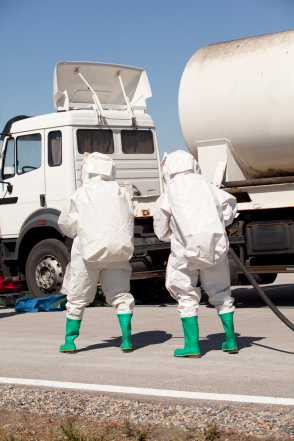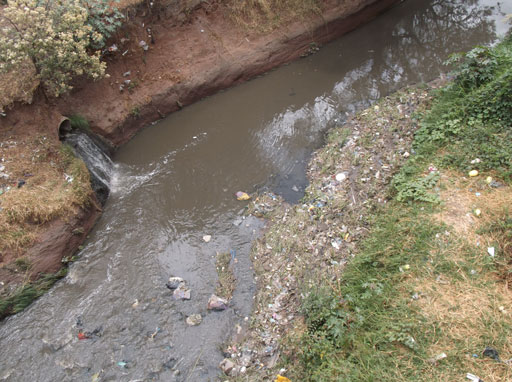Comprehending the Comprehensive Refine of Fluid Garbage Disposal: Ideal Practices and Environmental Impact Considerations
The administration of liquid waste disposal is a diverse problem that requires a detailed understanding of different best techniques and their connected ecological effects. From the kinds of liquid waste created to the methods used for collection, therapy, and final disposal, each action plays an important role in protecting communities and public wellness.
Sorts Of Fluid Waste
Recognizing the different kinds of liquid waste is crucial for effective monitoring and disposal techniques. Liquid waste can be extensively categorized right into several kinds, each calling for distinct handling and therapy strategies.
Industrial liquid waste often contains harmful products, including heavy metals, solvents, and chemicals, created during making procedures. These wastes require stringent governing conformity to protect human health and wellness and the environment. Domestic liquid waste mostly refers to wastewater created from households, including sewage and greywater, which, although less poisonous, can still pose significant risks if improperly handled.
Agricultural fluid waste, consisting of drainage from ranches, usually contains fertilizers and pesticides that can result in ecological degradation if not treated sufficiently. Medical fluid waste, generated from healthcare centers, consists of infected liquids such as physical fluids and chemicals, requiring specialized disposal methods to stop infection and environmental contamination.
Last but not least, oil and grease waste, usually created by dining establishments and automotive sectors, can create extreme obstructions in drain systems otherwise handled correctly. Recognizing these categories facilitates targeted methods for treatment, conformity with laws, and reliable disposal techniques, ultimately advertising ecological sustainability and public health and wellness security.

Collection Techniques
Reliable collection techniques are vital for the appropriate monitoring of fluid waste, making certain that it is gathered securely and efficiently prior to treatment or disposal. Numerous methods are employed depending upon the sort of liquid waste generated, the volume, and the particular characteristics of the waste.
One typical method is the usage of devoted collection tanks or sumps, which are developed to capture fluid waste at the source. These systems commonly include pumps that promote the transfer of waste to larger storage space containers or treatment facilities. In addition, mobile collection devices furnished with vacuum cleaner modern technology are employed in situations where waste is produced periodically or in hard-to-reach areas.
For commercial setups, closed-loop systems can properly reduce leaks and spills, permitting the healing and reuse of liquid waste. It is additionally necessary to educate employees on proper collection protocols to minimize dangers connected with hazardous materials.
In addition, executing routine upkeep timetables for collection tools makes sure optimal performance and safety. The assimilation of innovative surveillance systems can improve collection efficiency by offering real-time information on waste degrees and possible hazards. In general, efficient collection techniques are fundamental to lasting fluid waste management practices.
Treatment Processes
Therapy procedures play an essential duty in the monitoring of fluid waste, changing possibly dangerous materials right into recyclable resources or safe effluents - liquid waste disposal. These processes can be generally classified right into physical, chemical, and organic techniques, each tailored to deal with particular pollutants present in the waste stream
Physical therapy methods, such as sedimentation and filtration, work by eliminating put on hold solids and particle issue. These strategies are additional info frequently the primary step in the treatment chain, efficiently decreasing the load on subsequent processes. Chemical therapies involve the usage of reagents to reduce the effects of hazardous compounds, precipitate hefty steels, or oxidize organic pollutants, thereby improving the security of the effluent.
Biological treatment processes, consisting of turned on sludge systems and anaerobic digestion, take advantage of the all-natural capabilities of microorganisms to degrade natural issue. These methods are specifically reliable for wastewater containing naturally degradable contaminants. Advanced therapy modern technologies, such as membrane filtration and advanced oxidation procedures, are progressively employed to achieve higher levels of purification.
Including a combination of these treatment approaches not just ensures compliance with regulatory requirements but also advertises environmental sustainability by recouping useful resources from liquid waste.
Disposal Options
Exactly how can companies ensure the accountable and risk-free disposal of liquid waste? Effective disposal alternatives are critical for guarding public health and wellness and the environment. The key approaches consist of land incineration, disposal, and treatment followed by discharge right into community wastewater systems.
Land disposal includes the cautious control of liquid waste in assigned garbage dumps, guaranteeing that it does not seep into surrounding dirt or water. Incineration, on the various other hand, topics liquid waste to high temperatures, transforming it into ash and gases, which require proper filtering to minimize emissions. This technique appropriates for contaminateds materials that can not be dealt with with standard means.
In situations where fluid waste can be treated, organizations may go with like it chemical or biological therapy procedures to counteract unsafe components before releasing the treated effluent right into municipal systems. This route generally lines up with governing needs, making certain that the effluent meets security criteria.
Inevitably, companies have to carry out detailed analyses of each disposal alternative to determine its feasibility, taking into consideration factors such as waste structure, regulative compliance, and potential dangers to wellness and the atmosphere. By selecting ideal disposal approaches, companies can add to a responsible waste management technique.
Environmental Influence
The ecological impact of liquid waste disposal is a critical factor to consider for companies seeking to reduce their eco-friendly impact. Furthermore, the discharge of neglected or improperly dealt with waste right into surface area waters can result in eutrophication, leading to oxygen depletion and the subsequent fatality of fish and various other organisms.

To reduce these impacts, organizations must adopt best methods such as applying rigorous waste therapy processes, advertising recycling and reuse, and sticking to governing standards. By taking a positive technique to fluid waste management, entities can considerably minimize their ecological impact while sustaining sustainable development objectives. Inevitably, a comprehensive understanding of the ecological impacts connected with liquid garbage disposal is vital for educated decision-making and accountable stewardship of all-natural sources.
Final Thought
Reliable management of fluid waste is important for securing ecological stability and public health and wellness. Ultimately, a detailed understanding of fluid waste disposal not only alleviates ecological influences but likewise promotes a dedication to liable resource try here administration and ecological stewardship.
The monitoring of fluid waste disposal is a complex issue that needs a thorough understanding of various finest practices and their connected ecological influences. From the kinds of fluid waste created to the techniques utilized for collection, treatment, and final disposal, each step plays an important duty in securing ecosystems and public wellness.The environmental influence of liquid waste disposal is an important consideration for organizations looking for to lessen their eco-friendly impact. Inevitably, a detailed understanding of the ecological influences linked with fluid waste disposal is essential for informed decision-making and accountable stewardship of natural resources.
Ultimately, a comprehensive understanding of fluid waste disposal not just alleviates environmental effects however additionally fosters a dedication to responsible resource administration and environmental stewardship.